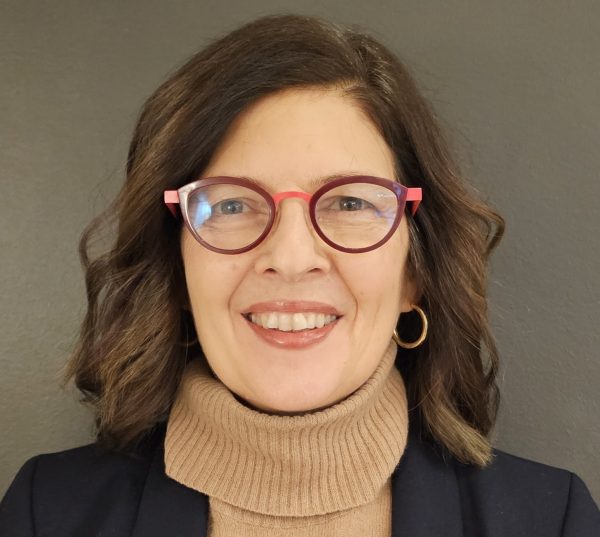The Ethical Tech Project is a non-profit organization that envisions a future where humans have insight into how their data is controlled and used by big tech companies, because the organization believes that the fundamental right to privacy should be universally protected. Pulse 2.0 interviewed Jennie Baird, Chair of The Ethical Tech Project’s Board, to gain a deeper understanding of the organization.
Jennie Baird’s Background

What is Jennie Baird’s background? Baird said:
“I’m a longtime digital media exec, working on the intersection of content, technology, and product for over 30 years. In January, I retired as Chief Product Officer of BBC Studios and now devote my time to tech for good projects and organizations, including the Ethical Tech Project, whose board I chair.”
Formation Of The Non-Profit
How did the idea for the non-profit come together? Baird shared:
“The Ethical Tech Project was the brainchild of serial entrepreneur and philanthropist Tom Chavez. Like me, Tom had been working in tech since the early days of the Internet. As young professionals, we both truly believed that this technology would be lifechanging and uplifting for humanity, which it has been in so many ways. What we didn’t foresee was the many ways it could – and has – gone off the rails and caused real harm to individuals, to the business and economic ecosystem, and to society more broadly.”
“When we started the Ethical Tech Project, we focussed heavily on data privacy and delivering tools and resources that would make privacy engineering easy, but as advances in AI have accelerated, we’ve broadened our programming to educate, convene, and equip tech and AI builders to make design, development and go-to-market decisions that engender trust and support human flourishing. That includes not just privacy, but safety, misinformation, accessibility, and sustainability.”
Favorite Memory
What has been your favorite memory working for the non-profit so far? Baird reflected:
“In June we concluded our Ethical Tech Fellowship. During the final session, the early- to midcareer Fellows who trained in our curriculum pitched their ideas for new ethically-minded businesses, products, services, and features to a panel of investors and industry experts. Their ideas were brilliant and exciting. It was so energizing, positive, and hopeful.”
Significant Milestones
What have been some of your non-profit’s most significant milestones? Baird cited:
“We’re a relatively new nonprofit, just four years old. Some key programs and projects we’ve delivered include:
- The Privacy Stack, a reference architecture for privacy engineering
- A first of its kind consumer survey on GenAI
- The Ethical Tech Curriculum, a pragmatic 10-module program to train tech and AI builders in more ethical practices
- Development and completion of our Ethical Tech Fellows pilot cohort”
Success Stories
When asking Baird about success stories, she highlighted:
“When we announced the call for applications for the pilot Ethical Tech Fellowship, we had hoped to get 12 qualified individuals to sign up – but in less than 10 days we had around 150 applicants. That made it clearer than ever that there is demand for our programs – and that the industry has an appetite for the transformation we are driving.”
Funding
When asking Baird about how they are operating, she revealed:
“We are currently grant-funded, and are seeking to develop relationships with additional grantmakers. We’ve also adapted our curriculum to bring Ethical Tech and AI training to corporations, industry events, etc.”
Differentiation From Other Non-Profits
What differentiates your non-profit from others? Baird emphasized:
“There are a lot of wonderful organizations in the tech for good space and we enjoy partnering with them on programs and events. Many of these organizations focus on research, policy advocacy and bringing people together.”
“Others focus on training under-represented populations in STEM. We fill a gap at the center of this landscape – synthesizing and amplifying the research and best practices developed by other organizations, and using those to develop practical tools and education for the people who can have the biggest impact on what gets built – the tech builders themselves (engineers, designers, product managers, data scientists, digital marketers, and company founders).”
Challenges Faced
What are some of the challenges you faced while working at the non-profit? Baird acknowledged:
“This is an incredibly challenging time for anyone working in nonprofits. Prior to 2025, we felt that we had regulatory tailwinds, meaning that there was an appetite among government and regulatory agencies at both the federal and state levels to create guardrails around tech and AI safety, data privacy, and sustainability. That climate has shifted dramatically and we know that Ethical Tech can’t just be “eat your vegetables” for companies to adopt. We have to really demonstrate that doing the right thing when it comes to tech and AI ethics will be good for the bottom line.”
Future Goals
What are some of your nonprofit’s future goals? Baird concluded:
“We know we need to scale our programs – and do it quickly. We’re in the midst of launching our corporate trainings now, which is a way we can reach significantly more builders and tech leaders with our practical ideas and solutions. We’re also in talks with some investors about pathways to connect capital with ethical tech ideas.”